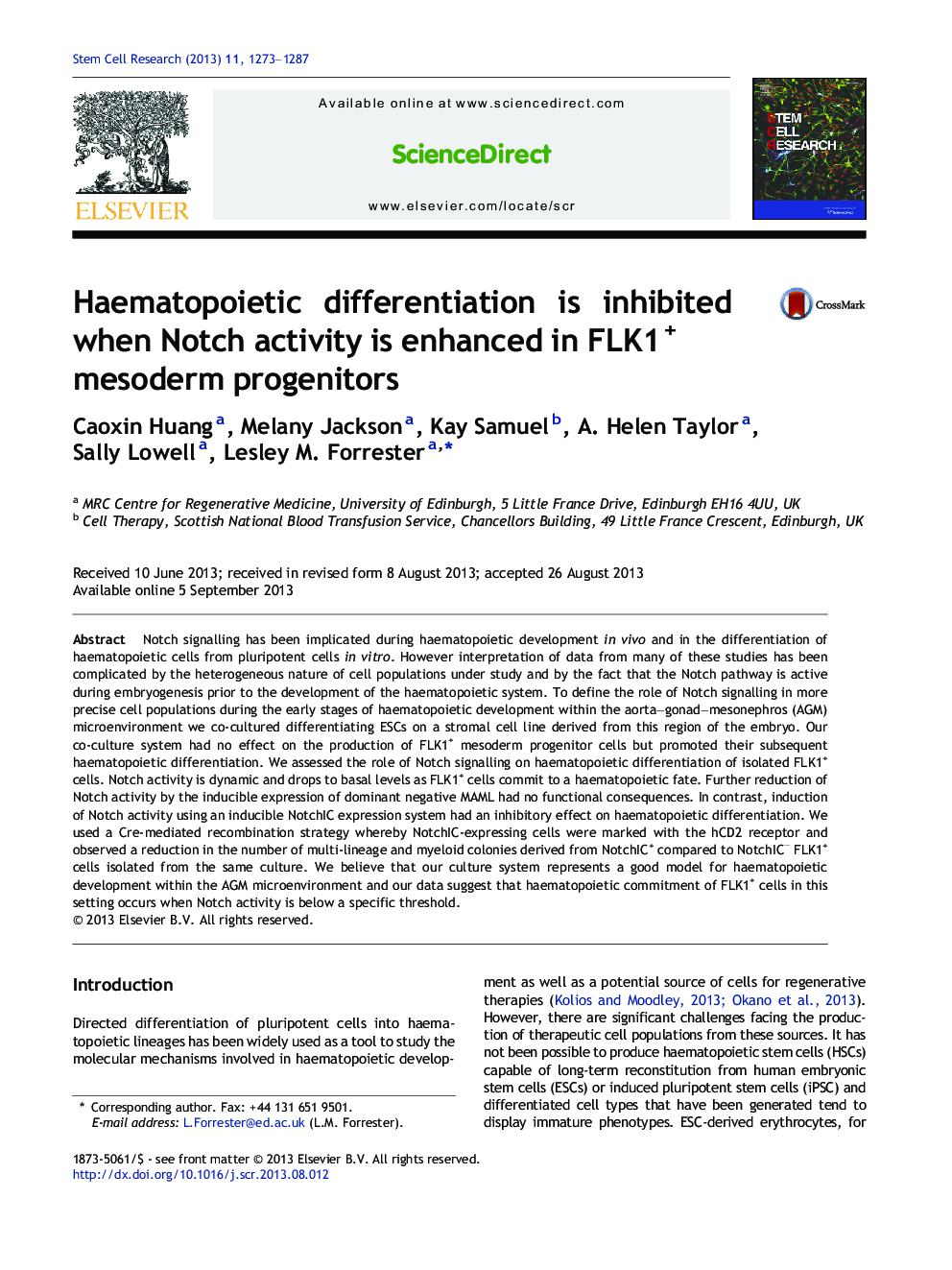| Article ID | Journal | Published Year | Pages | File Type |
|---|---|---|---|---|
| 10891289 | Stem Cell Research | 2013 | 15 Pages |
Abstract
Notch signalling has been implicated during haematopoietic development in vivo and in the differentiation of haematopoietic cells from pluripotent cells in vitro. However interpretation of data from many of these studies has been complicated by the heterogeneous nature of cell populations under study and by the fact that the Notch pathway is active during embryogenesis prior to the development of the haematopoietic system. To define the role of Notch signalling in more precise cell populations during the early stages of haematopoietic development within the aorta-gonad-mesonephros (AGM) microenvironment we co-cultured differentiating ESCs on a stromal cell line derived from this region of the embryo. Our co-culture system had no effect on the production of FLK1+ mesoderm progenitor cells but promoted their subsequent haematopoietic differentiation. We assessed the role of Notch signalling on haematopoietic differentiation of isolated FLK1+ cells. Notch activity is dynamic and drops to basal levels as FLK1+ cells commit to a haematopoietic fate. Further reduction of Notch activity by the inducible expression of dominant negative MAML had no functional consequences. In contrast, induction of Notch activity using an inducible NotchIC expression system had an inhibitory effect on haematopoietic differentiation. We used a Cre-mediated recombination strategy whereby NotchIC-expressing cells were marked with the hCD2 receptor and observed a reduction in the number of multi-lineage and myeloid colonies derived from NotchIC+ compared to NotchICâ FLK1+ cells isolated from the same culture. We believe that our culture system represents a good model for haematopoietic development within the AGM microenvironment and our data suggest that haematopoietic commitment of FLK1+ cells in this setting occurs when Notch activity is below a specific threshold.
Related Topics
Life Sciences
Biochemistry, Genetics and Molecular Biology
Biotechnology
Authors
Caoxin Huang, Melany Jackson, Kay Samuel, A. Helen Taylor, Sally Lowell, Lesley M. Forrester,
